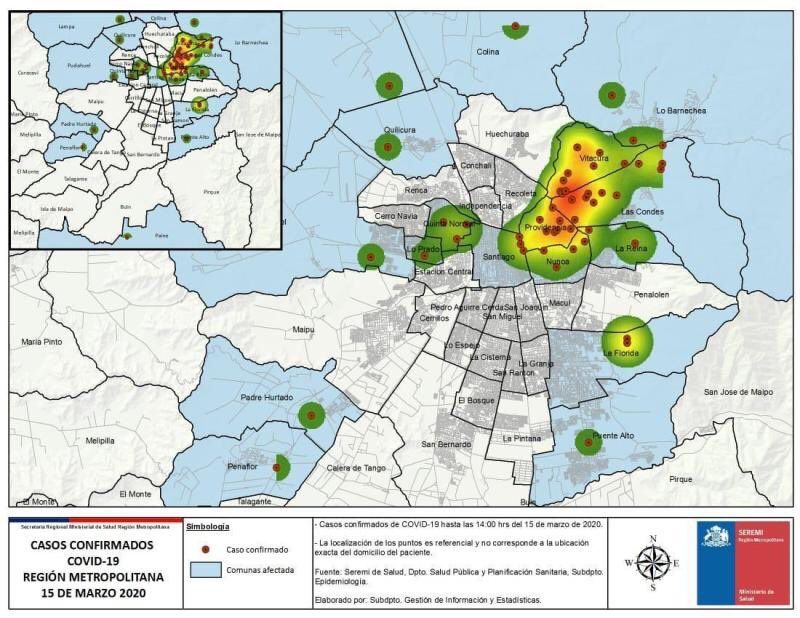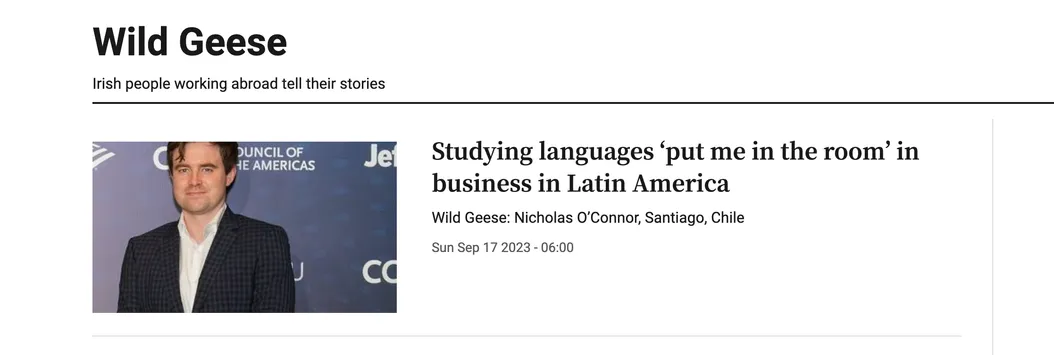On March 22nd the Chilean government decided to implement a curfew in order to try and mitigate the spread of Covid-19. The country hasn’t gone into total lockdown just yet, but from 10 pm on Sunday citizens will have to be inside their homes and the military will be back on the streets for the first time since the protests of October and November 2019.
This news comes on yet another day of these very interesting times in which we are all living/existing. The phrase “may you live in interesting times” was first written in reference to the joy brought about by constant technological advances and the desire that this wondrous growth continue. It was purportedly based on a Chinese proverb. When I looked it up, I found that that was not the case. It seems that the so-called proverb link was mentioned in a speech in 1936 by a British foreign secretary who didn’t speak Chinese and had never been to China. It’s a good thing that politicians have since learned to not to pretend to be experts on things they know nothing about. I feel that the phrase is also aplicable now, as whether we like it or not we are living through one of the potentially most interesting times in the history of civilization. A time period that will leave an indelible impact on all of us and more than likely drive technological disruption to a whole new level.
Another inevitability is the fact that Chile will have to go into full lockdown later this week. Unfortunately, Latin American citizens tend to respond better to the army in the streets than to government calls for restraint. Calls for self isolation have been met with mass exoduses to the beach and house parties in the city. Would the Gardaí/Defence Forces be able to shut down Ireland if necessary?
Interestingly, up until this point the virus has been concentrated in the upper-class eastern sector of Santiago. This is due to the fact that most cases have been imported from Europe and air travel is a luxury that only a small portion of Chile’s population can afford. It will be touch and go as to how it develops here. The health system would not be able to cope with a large outbreak and there have been mixed messages from the government up until today's announcement.

My own “interesting times” period unfortunately began back last October. The rest of the world has only recently joined me on Hellscape Earth 2020. In retrospect, the events of last year now appear to have been some kind of surreal training exercise for the coronavirus pandemic. There are weird parallels to what we experienced in Chile and what the world is experiencing now: the military enforced curfews, fears of using public transport, working from home, economic shutdown, queues in the supermarkets and that constant nagging feeling of dread in the pit of your stomach. These were all daily realities in October, November and December. The news that the curfew is being brought back has been met with general apathy and bad jokes about the virus not being vampiric.
One thing that is fortunately missing from the current crisis is the pathological desire to destroy traffic lights. Chile’s assorted road signs and street lamps have breathed a collective sigh of relief as the country has turned away from marches and towards self-isolation. The referendum on the new constitution has been postponed until October 25th.
So, how do you deal with the crippling anxiety brought about by fears for your loved ones, your job security and the small factor that your entire way of life will probably change forever? The first thing to do is to accept the obvious: things will probably get exponentially worse.
I remember that during the first few days of the unrest here in Santiago my brain kept coming up with reasons as to why the riots wouldn’t continue on much longer and how things would soon get back to normal and how my life would be comfortable again. My poor misguided brain was just trying to help out but, not for the first time, it was also stopping me from seeing the full picture. The unrest kept boiling over and the bad news kept coming whilst the country looted and burned itself to its knees. I wasn't ready for this and it was not an enjoyable time. For me or my brain.
The desire for everything to be ok can distort your perceptions and you and your complicit cerebrum go along with it because it makes you both feel better. Unfortunately, I feel that many of our beloved world leaders have had this approach as well. The reality of the virus is so threatening that many refuse to believe it.
Let’s be honest, it would be just great if it did go away and we could go back to the way things were. But the power of positive thinking alone isn’t enough. You can’t just keep saying that it won’t get that bad and that “if we're lucky sure it will just go away in a few weeks”. This distorted form of “positive thinking” leads to carelessness and you suddenly begin to think that it is a good idea to have a picnic with three other idiots. Last week I wrote that we needed to start giving into our paranoia, this week I feel we need to give into our worry. There is nothing like a bit of paralyzing anxiety to stop you going to see your friends. We need to realize just how bad things will get, let’s think cataclysm and work back from there.
The improvised apocalypse training course that I underwent here in Chile has helped me prepare my mental state for current events. There are things that I cannot control (such as the current decision not to send everyone who went to Cheltenham to some sort of Gaeltacht Gulag on Achill) but there are others that I can. I can mind myself, argue on Google Hangouts with my parents about how necessary fresh bread is and I can also pontificate online about important it is to STAY IN YOUR HOUSE.
If you have reached this far you may have realized that you are reading this on my new website. If you would like to receive a weekly newsletter with similar thoughts from me and other recommendations for cool things to look at, then do please sign up here:
If you liked the article then it would be great if you shared it, even if only to sneer about it in WhatsApp groups. Every click helps.

